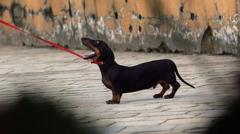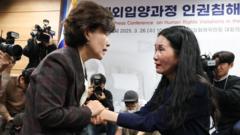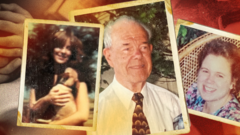When Keira's daughter was born last November, she was given two hours with her before the baby was taken into care. Right when she came out, I started counting the minutes, 39-year-old Keira recalls, describing how she looked at the clock, knowing their brief time together was fleeting.
As the moment approached for Zammi to be taken from her arms, Keira sobbed uncontrollably, whispering 'sorry' to her baby. It felt like a part of my soul died. This emotional turmoil is not unique to Keira; many Greenlandic families on the Danish mainland are fighting to reclaim their children, removed by social services under controversial parental competency tests known as FKUs, designed to assess a parent's fitness to care for their child.
In a significant shift, the Danish government banned the use of FKUs on Greenlandic families in May 2025, following years of outcry over the assessments. However, this review has not been extended to other families in Denmark, where FKUs continue to be utilized.
Greenlanders are Danish citizens and face stark statistics: they are 5.6 times more likely than Danish parents to have their children placed into care. Despite the government promising a review of about 300 cases involving Greenlandic children, only 10 cases had been reassessed by October, with no children returned.
Keira's FKU assessment indicated she lacked sufficient parental competencies, based on tests that reportedly included questions such as Who is Mother Teresa? and How long does it take for the sun's rays to reach the Earth? Critics argue these questions are culturally biased, being administered in Danish and not representative of Greenlandic norms. For her, the journey is fraught with constant visits to see Zammi, who is in foster care. Each time she brings flowers and traditional food, hoping to keep a connection to her culture alive.
Similar stories echo throughout the community. Johanne and Ulrik recount their struggle after their son was forcibly taken away shortly after birth due to a flawed assessment process, which they argue unfairly labeled Johanne as unfit. They too were left without their child, burdened by the procedural red tape that often governs child welfare decisions.
The issues raised are not just personal traumas; they highlight systemic inadequacies and cultural biases embedded in Denmark's child welfare frameworks. As the families continue their fight for justice and reform, their determination underlines the urgent need for changes that protect children while respecting the complex cultural identities of Greenlandic families.
Ultimately, Keira emphasizes, I will not stop fighting for my children. If I don't finish this fight, it will be my children's fight in the future. Her hope remains steadfast, as she prepares for Zammi's first birthday, crafting a traditional sleigh—a symbol of her enduring love and commitment.





















